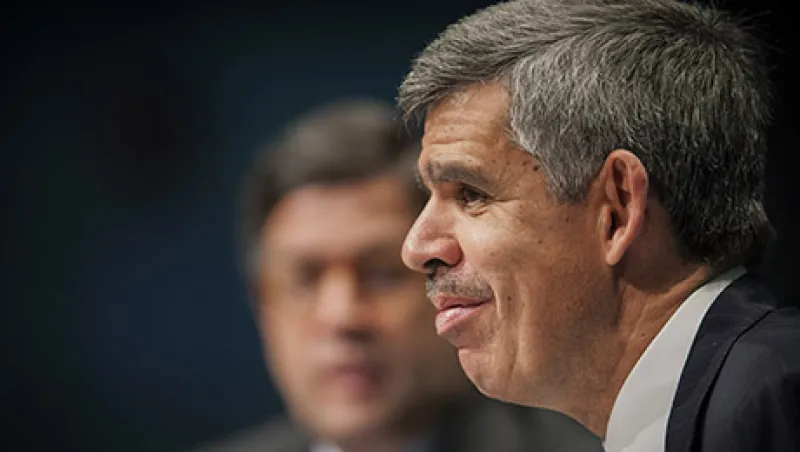
Mohamed El-Erian, chief economic advisor at Allianz SE, pauses while speaking at the 31st Annual Meeting of the Bretton Woods Committee at the World Bank Headquarters in Washington, D.C., U.S., on Wednesday, May 21, 2014. This year's meeting brings together leaders and experts from business and civil society to consider the value and changing nature of multilateralism in an age of austerity. Photographer: Pete Marovich/Bloomberg *** Local Caption *** Mohamed El-Erian
Pete Marovich/Bloomberg

